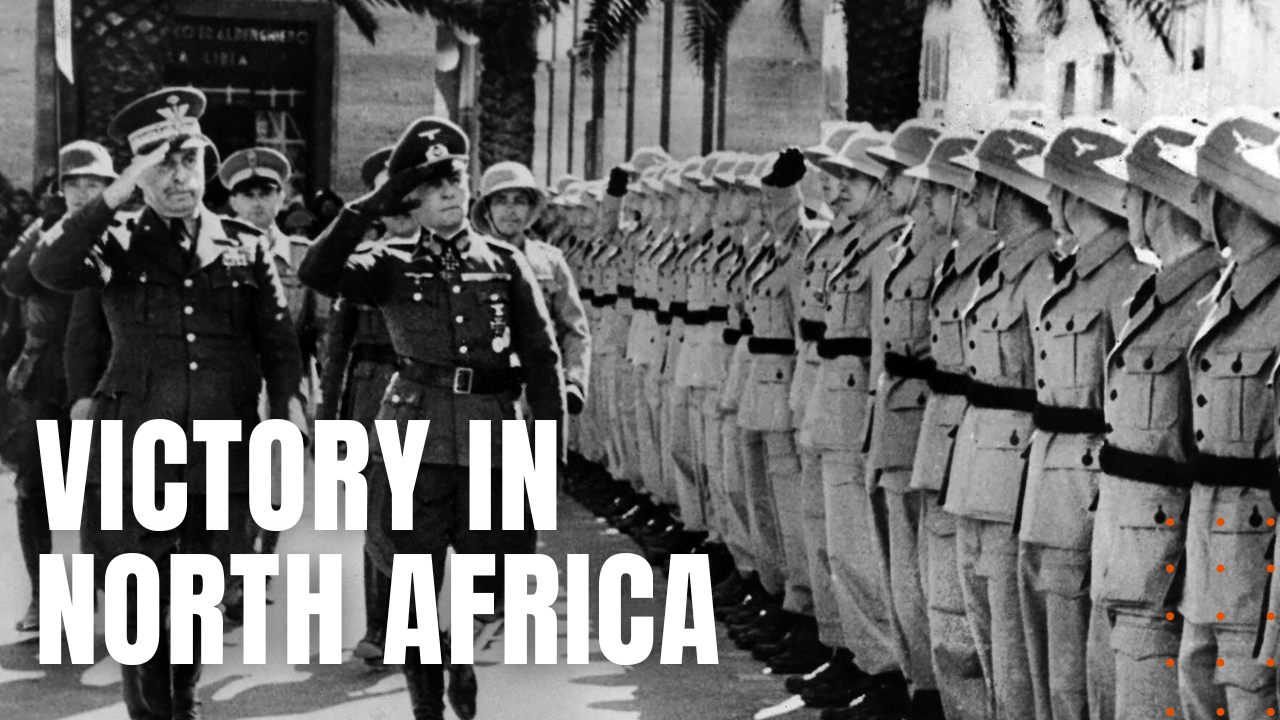Victory in North Africa

After fascist dictator, Benito Mussolini, declared war on Britain and France on June 11th, 1940, four months later, Italian forces invaded Egypt from their colony in Libya, setting off a three-year fight for control of the eastern Mediterranean and the vital supply line through the Suez Canal. In response to the Italian’s aggression, in December of that same year, General Sir Archibald Wavell’s 36,000-man Western Desert Force—soon to be renamed the Eighth Army—attacked the Italian’s position at Sidi Barrani. In early 1941, Lieutenant-General Richard O’Connor’s mobile armored force outflanked the Italians at Beda Fomm, pushing them back 500 miles to their defeat at El Agheila on February 7th, ending in the destruction of nine Italian divisions and the capture of 130,000 men.
Enter The Desert Fox
Britain’s easy victory in North Africa ended when Hitler sent Erwin Rommel’s Afrika Korps into Tripoli on February 11th, beginning a punishing 27-month period of back-and forth advances, victories and fall backs for both sides of the conflict. Rommel’s siege of Tobruk in March of 1941, was followed by an Allied victory that pushed Rommel back to El Agheila by December. Rommel again advanced beyond Benghazi in January of 1942, until Britain’s heavily defended line at Gazala and Tobruk stalled Rommel’s advance until May, when he finally broke the Allied line, in a move that forced the British back into Egypt. After a series of Allied leadership changes and repeated supply line failures on both sides, Lieutenant-General Bernard Montgomery took over control of the Eighth Army, following the Allies’ victory at the First Battle of El Alamein in July of 1942—a leadership injection that rapidly restored the Allies’ badly flagging morale. The beginning of the end began on November 8th, 1942, when Allied forces landed in present-day Morocco and Algeria under the command of General Dwight D. Eisenhower.
Operation Torch
Codenamed Operation Torch, the Allies pushed into Tunisia, until the Germans successfully blocked Eisenhower’s route to Tunis at Kasserine. Montgomery, meanwhile, now enjoyed a significant advantage in men, artillery, tanks and aircraft, launching a 600-gun night barrage on Axis positions on October 24, 1942, which breached Rommel’s heavily defended line ten days later. By March 20th of 1943, Eisenhower’s forces had linked up with Montgomery’s Eighth Army, entering the German’s last fallback line at Tunis on May the 7th. Five days later, 250,000 German and Italian troops surrendered, making the Battle for North Africa, the Allies’ first victory on their long march for Berlin.
